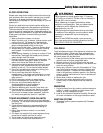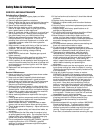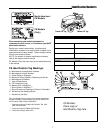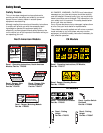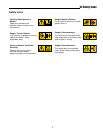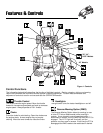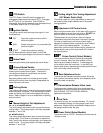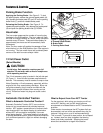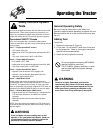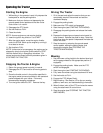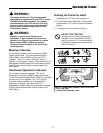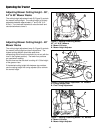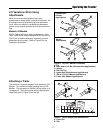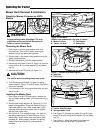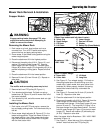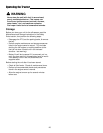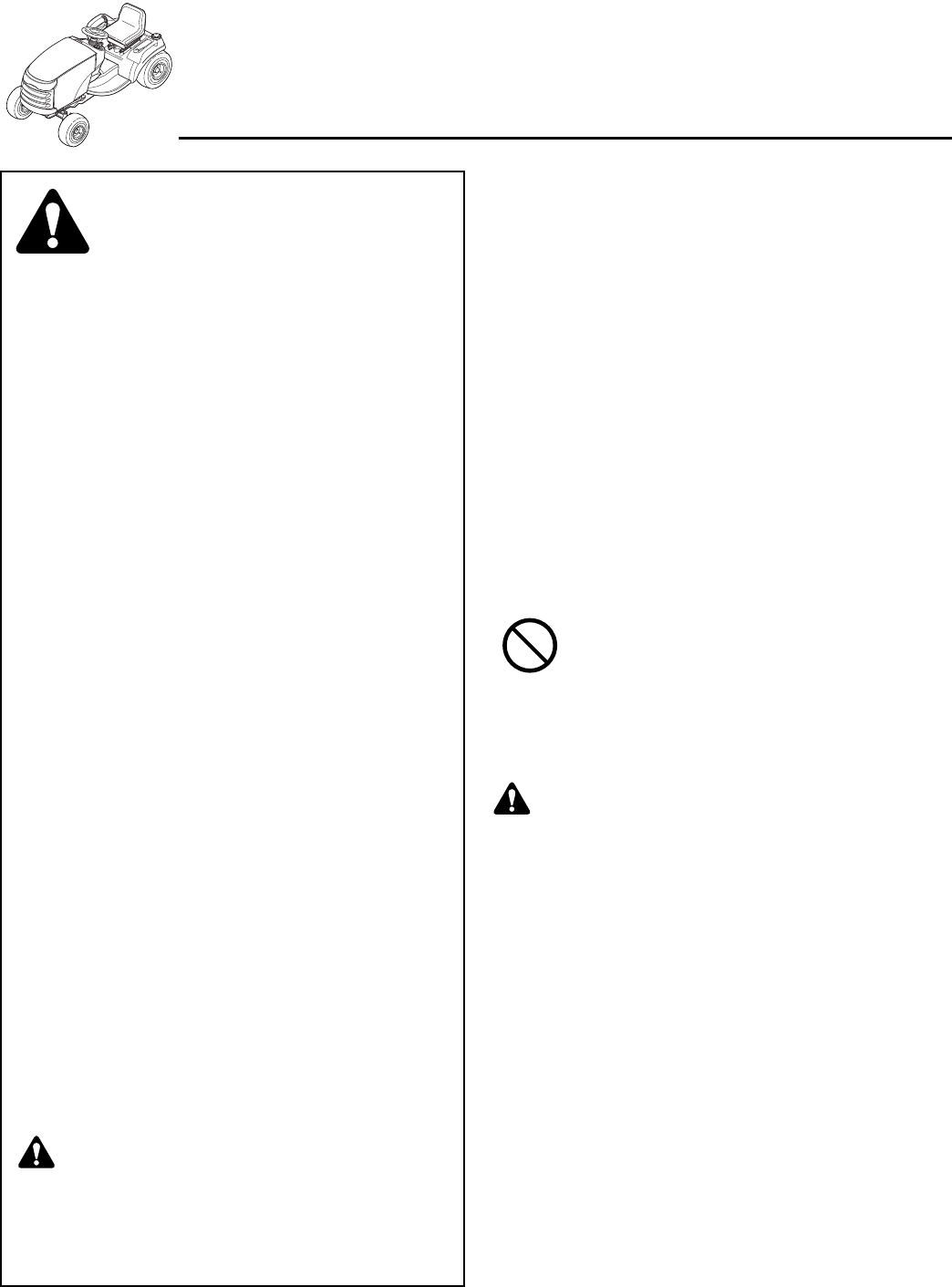
13
Operating the Tractor
Safety Interlock System
Tests
This unit is equipped with safety interlock switches and other
safety devices. These safety systems are present for your
safety: do not attempt to bypass safety switches, and never
tamper with safety devices. Check their operation regularly.
Operational SAFETY Checks
Your unit is equipped with a seat switch safety system.
Check the seat switch operation every fall and spring with the
following tests.
Test 1 — Engine should NOT crank if:
• PTO switch is ON, OR
• Brake pedal is NOT fully depressed (parking brake OFF),
OR
• The cruise control lever is NOT in NEUTRAL.
Test 2 — Engine SHOULD crank if:
• PTO switch is OFF, AND
• Brake pedal is fully depressed (parking brake ON), AND
• The cruise control lever is in NEUTRAL.
Test 3 — Engine should SHUT OFF if:
• Operator rises off seat with PTO engaged, OR
• Operator rises off seat with brake pedal NOT fully
depressed (parking brake OFF).
Test 4 — Blade Brake Check
Mower blades and mower drive belt should come to a
complete stop within five seconds after electric PTO switch is
turned OFF (or operator rises off seat). If mower drive belt
does not stop within five seconds, readjust the PTO clutch as
described in the ADJUSTMENTS section or see your dealer.
Test 5 — Reverse Mow Option (RMO) Check
• Engine should shut off if reverse travel is attempted if the
PTO has been switched on and RMO has not been
activated.
• RMO light should illuminate when RMO has been
activated.
NOTE: Once the engine has stopped, the PTO switch must
be turned off after the operator returns to the seat in order to
start the engine.
WARNING
If the unit does not pass a safety test, do not
operate it. See your authorized dealer. Under no
circumstance should you attempt to defeat the
purpose of the safety interlock system.
General Operating Safety
Be sure to read all information in the Safety and
Operation sections before attempting to operate this unit.
Become familiar with all of the controls and how to stop
the unit.
Adding Fuel
To add fuel:
1. Remove the fuel cap (A, Figure 4).
2. Fill the tank. Do not overfill. Leave room in the tank
for fuel expansion. Refer to your engine manual for
specific fuel recommendations.
3. Install and hand tighten the fuel cap.
WARNING
Gasoline is highly flammable and must be
handled with care. Never fill the tank when the
engine is still hot from recent operation. Do not
allow open flame, smoking or matches in the
area. Avoid over-filling and wipe up any spills.
Do not use gasoline containing METHANOL,
gasohol containing more than
10% ETHANOL, gasoline additives, or white
gas because engine/fuel system damage
could result.



